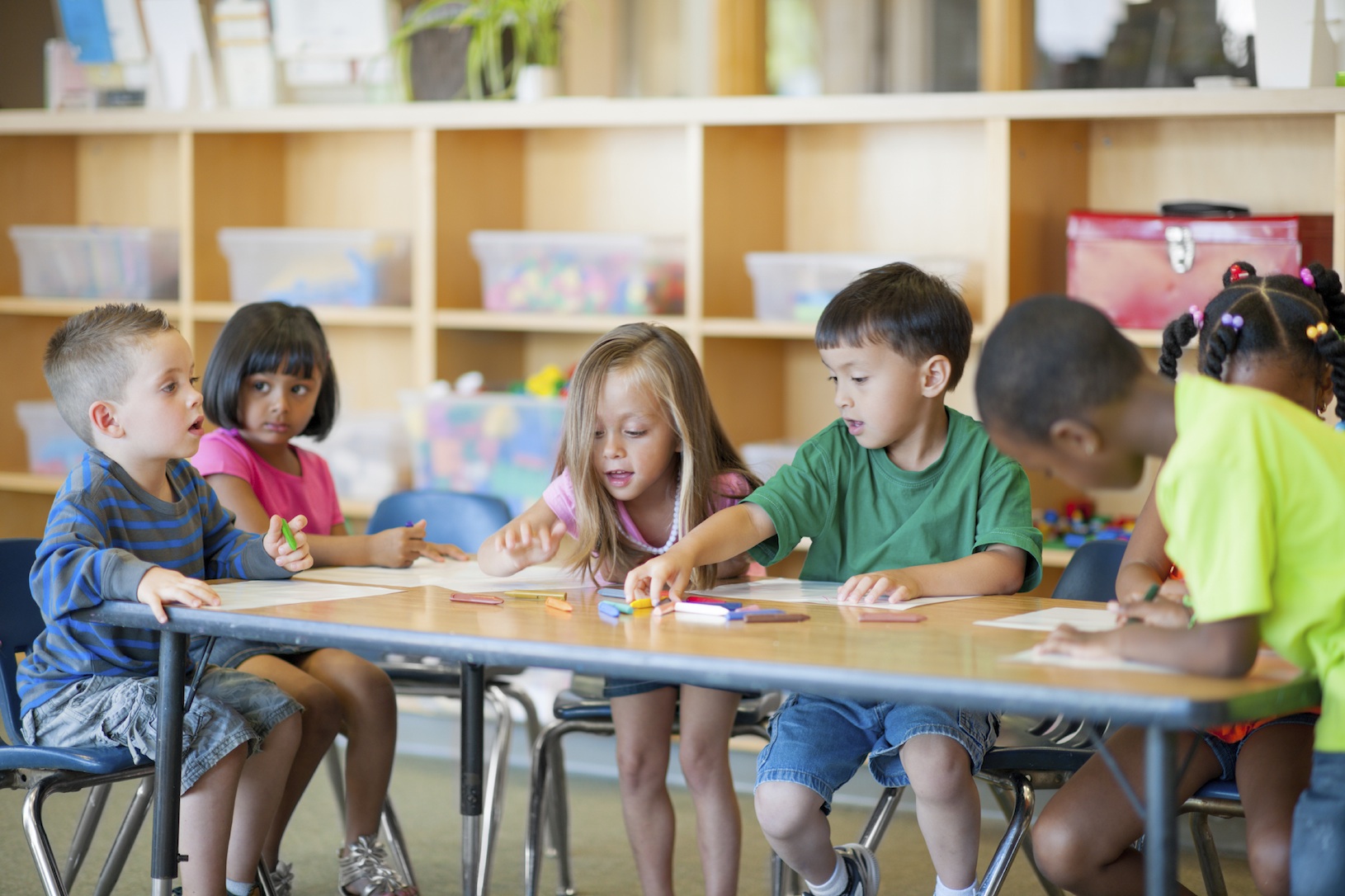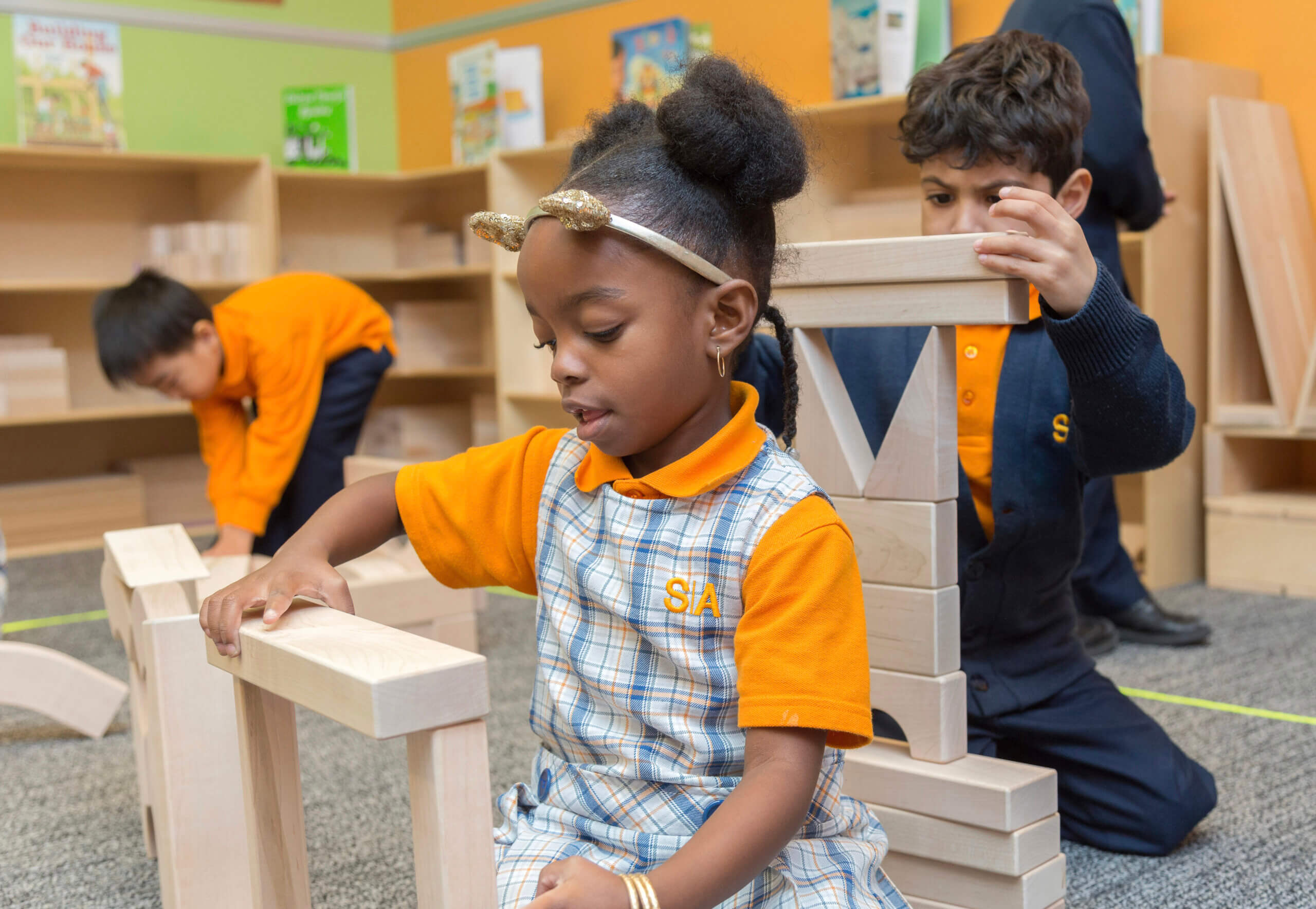How games strengthen critical thinking among Private School students
Wiki Article
The Importance of Interactive Tasks in Elementary School Education
Interactive tasks play an essential role in elementary school education. They engage students and improve learning results. Via group projects and hands-on experiments, pupils experience the material in a practical means. This technique provides to diverse learning designs and promotes necessary abilities. Nevertheless, the benefits extend beyond academics. Checking out the much deeper impact of these tasks discloses their relevance fit young students' futures. What changes take place when trainees proactively take part?Enhancing Involvement Through Interactive Understanding
Although typical mentor techniques have their values, interactive understanding significantly boosts student involvement in grade college education and learning. This strategy motivates energetic engagement, enabling students to immerse themselves in the knowing process. By making use of team activities, hands-on experiments, and technology-driven sources, instructors create an environment where students feel a lot more connected to the product.Interactive discovering assists in collaboration among peers, fostering communication abilities and team effort. It also accommodates diverse understanding designs, making sure that visual, acoustic, and kinesthetic students can all prosper. Trainees are much more most likely to keep details when they proactively take part, as opposed to passively getting expertise.
This dynamic technique not just makes discovering satisfying however also instills a feeling of possession in trainees concerning their academic trip. As they engage with the content, their inquisitiveness and motivation to learn increase, laying a solid foundation for future academic success.
Developing Vital Believing Abilities
Interactive understanding not just boosts interaction yet also serves as a catalyst for establishing vital believing abilities in grade college students. Via tasks such as problem-based discovering, discussions, and hands-on experiments, trainees are urged to analyze information, review various perspectives, and develop reasoned conclusions. These interactive experiences call for students to doubt assumptions, leading them to assume more deeply regarding various subjects.
Interactive activities often existing real-world circumstances that test students to use their understanding artistically. By navigating via these obstacles, they learn to determine relevant details and make informed decisions. This procedure promotes not just specific vital reasoning however additionally encourages trainees to express their assumed procedures, enhancing their capacity to interact properly. Because of this, interactive knowing atmospheres cultivate a generation of important thinkers who are much better prepared to take on complex problems in their future scholastic and professional endeavors.
Fostering Collaboration Among Peers
Cultivating collaboration among peers is essential in elementary school education and learning, as it boosts synergy and communication skills. Taking part in group activities assists trainees build trust and respect for each other, laying the groundwork for efficient cooperation. Analytic with each other enables trainees to discover from each various other and create a cumulative strategy to difficulties.Teamwork and Communication Skills
Effective synergy and communication skills are crucial parts of a successful elementary school education. Taking part in interactive tasks encourages pupils to work together, share ideas, and address issues with each other. Such experiences advertise the growth of important communication capabilities, enabling youngsters to share their thoughts clearly and pay attention actively to others. With team effort, pupils find out to value diverse perspectives, promoting a sense of neighborhood and shared responsibility. Structured group tasks, whether in academics or innovative jobs, enhance peer interactions, teaching youngsters exactly how to negotiate functions and deal with conflicts. Subsequently, these skills not only add to a favorable classroom atmosphere yet likewise prepare trainees for future collaborative ventures in college and the workplace. Generally, synergy and interaction are foundational to all natural development in elementary school.Structure Depend On and Regard
Structure trust fund and regard amongst peers functions as a cornerstone for effective partnership in elementary school settings. When pupils feel valued and respected by their classmates, they are extra likely to engage actively in team activities. Interactive activities, such as team tasks and cooperative games, provide chances for trainees to pick up from one an additional, promoting a feeling of area. This atmosphere encourages open interaction, allowing pupils to reveal their ideas and viewpoints without fear of judgment. As count on builds, trainees come to be much more eager to share obligations and sustain each various other's learning. Ultimately, cultivating an atmosphere of trust and regard improves not only scholastic end results however likewise social growth, outfitting trainees with crucial interpersonal abilities for their future endeavors.Problem-Solving With each other
Collective problem-solving engages pupils in important reasoning and team effort, essential abilities for their individual and academic development. When trainees work together to take on obstacles, they learn to connect efficiently, regard varied perspectives, and utilize each other's strengths. This procedure enhances their capability to examine troubles from numerous angles and develop imaginative solutions. Team activities, such as scientific research experiments or math obstacles, promote energetic involvement and cultivate a feeling of neighborhood. As trainees collaborate, they likewise construct social skills, finding out to work out and jeopardize, which are essential for future communications. Eventually, analytic with each other grows a helpful discovering atmosphere, empowering trainees to take possession of their education and learning while preparing them for collaborative endeavors past the class.Encouraging Creativity and Development
Motivating creativity and development in grade institution education and learning can be significantly boosted via hands-on discovering experiences. These tasks permit trainees to engage straight with principles and products, fostering imaginative reasoning. Additionally, collective group tasks can boost diverse concepts and remedies, even more nurturing a creative environment.Hands-On Knowing Experiences
A wide variety of hands-on knowing experiences considerably boosts creative thinking and technology in elementary school education and learning. Engaging trainees in functional tasks enables them reference to apply academic knowledge in real-world contexts, promoting deeper understanding. By adjusting products and tools, kids establish vital problem-solving abilities and find out to believe outside package. These experiences motivate inquisitiveness and inspire trainees to explore their passions additionally. Additionally, hands-on activities can bridge various subjects, linking science, art, and mathematics in purposeful means. This interdisciplinary method motivates trainees to see connections and assume artistically. Ultimately, hands-on understanding experiences nurture a generation of pioneers, furnishing them with the abilities and confidence required to tackle future challenges and contribute to culture in one-of-a-kind methods.Collaborative Group Projects
Hands-on understanding experiences normally result in the consolidation of collaborative team tasks, which play a vital role in cultivating imagination and technology in elementary school education and learning. These projects encourage pupils to collaborate, sharing ideas and point of views, which enhances analytic abilities and critical thinking. Through cooperation, trainees discover to interact efficiently and respect diverse viewpoints, crucial abilities for their future. In addition, team projects supply chances for trainees to explore various functions, boosting More Bonuses their versatility and confidence. Taking part in this cooperative atmosphere permits them to explore their creativity, pressing the limits of typical knowing. Inevitably, joint group tasks not only improve the educational experience but additionally prepare trainees for real-world difficulties that require synergy and cutting-edge thinking.Building Self-confidence and Self-reliance
As trainees participate in interactive tasks, they usually discover chances to build self-confidence and self-reliance. These activities, whether they include hands-on projects, role-playing, or analytic tasks, encourage pupils to take initiative and express their ideas openly. By joining such experiences, students learn to trust their capabilities and make decisions without depending solely on guidance from peers or instructors.Moreover, interactive activities foster a sense of ownership over learning. When pupils tackle difficulties collaboratively or independently, they develop vital thinking skills and durability. This procedure not only improves their understanding of the subject matter but likewise equips them to take dangers in their learning trip.
As they browse different interactive scenarios, trainees progressively shed their insecurity, leading the means for enhanced self-esteem - Kindergarten. Ultimately, these activities play a vital function in nurturing independent and confident students, geared up to encounter future academic and individual difficulties
Producing a Positive Class Setting
While cultivating a positive class setting is necessary for effective learning, it requires willful initiative from educators to create a click here to find out more room where pupils feel secure, highly regarded, and involved. A positive atmosphere urges partnership, permitting pupils to share themselves without worry of judgment.Educators can achieve this by developing clear assumptions, advertising common respect, and identifying private payments. Integrating interactive tasks further enhances involvement, making discovering more delightful and vibrant.
Furthermore, a nurturing atmosphere sustains social-emotional development, as trainees discover to browse relationships and deal with conflicts. Educators play an essential role in modeling favorable habits and reinforcing a culture of compassion and inclusivity.
Often Asked Concerns

Exactly How Can Parents Support Interactive Understanding in the house?
Parents can support interactive discovering in the house by offering appealing materials, urging hands-on jobs, incorporating academic games, cultivating discussions, and developing a nurturing atmosphere that promotes interest and expedition in their kids's discovering experiences. (Grade School)What Kinds Of Interactive Activities Are The Majority Of Effective?
Hands-on jobs, joint games, role-playing circumstances, and educational modern technology applications are among the most reliable interactive activities. These involve trainees, improve crucial assuming abilities, and advertise synergy, eventually fostering a much deeper understanding of numerous subjects.How Do Interactive Tasks Deal With Different Understanding Styles?
Interactive activities involve aesthetic, acoustic, and kinesthetic learners by including diverse methods. These activities help with recognizing through hands-on experiences, collective discussions, and aesthetic help, allowing pupils to soak up details according to their preferred discovering style.What Are the Costs Connected With Carrying Out Interactive Tasks?

Executing interactive tasks incurs costs such as products, training for educators, technology upgrades, and prospective center alterations. Budget restraints can additionally impact the regularity and range of activities offered to pupils in instructional settings.
Just How Can Teachers Evaluate the Effect of Interactive Knowing?
Educators can analyze the effect of interactive knowing with monitorings, student feedback, efficiency metrics, and comparative evaluation of examination ratings prior to and after execution, ensuring a comprehensive understanding of engagement and knowledge retention renovations.Through tasks such as problem-based learning, discussions, and hands-on experiments, trainees are motivated to assess details, examine various perspectives, and develop reasoned final thoughts. Interactive tasks often existing real-world situations that test trainees to apply their expertise artistically. Engaging in interactive tasks motivates students to collaborate, share concepts, and fix issues with each other. Interactive activities, such as group projects and participating games, offer chances for students to find out from one an additional, cultivating a sense of area. As trainees engage in interactive activities, they usually find chances to build self-confidence and self-reliance.
Report this wiki page